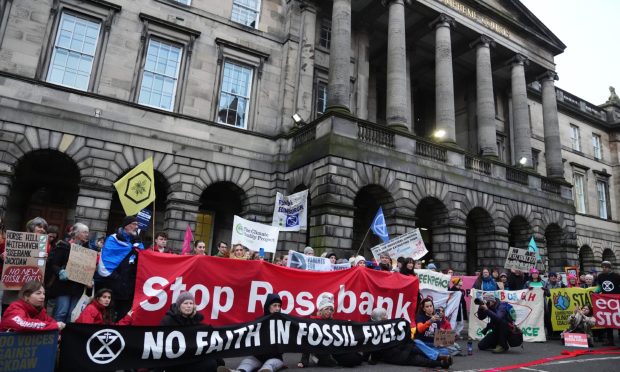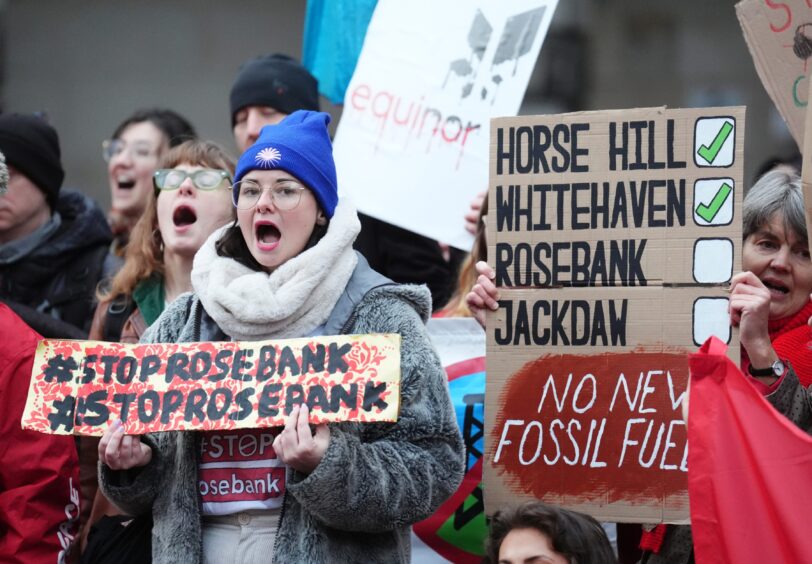Environmental campaigners have launched a legal challenge seeking to overturn the go-ahead given to two major offshore oil and gas developments.
Greenpeace and Uplift maintain that a UK government decision to grant consent for the Rosebank and Jackdaw fields was unlawful and should be reduced by a judge at the Court of Session in Edinburgh.
Ruth Crawford KC, senior counsel for Greenpeace, said it was agreed that the decisions were unlawful because “downstream” emissions emitted following the use of fuel were not taken into account in environmental impact statements prepared for the proposed developments.
She told judge Lord Ericht that it was accepted that the court has discretion as to the remedy to correct the unlawfulness.
She said: “Climate change has and will continue to have significant adverse effects on both the environment and on human health. Those effects will occur at local, national and global level.”
The senior counsel told the court that it was accepted that greenhouse gas emissions cause climate change and that there would be emissions from gas and oil from the Jackdaw and Rosebank developments. She submitted that they would be “sizeable and significant”.
The Jackdaw field, off Aberdeen, was capable of producing 6.5% of UK gas production and Rosebank, north west of Shetland, was considered to be the UK’s largest undeveloped oil and gas field with a potential to produce 300 million barrels of oil.
She said there could be no doubt that both would produce substantial amounts and would impact the environment and human health.
The UK has both national and international obligations to reduce greenhouse gas emissions and there was a statutory obligation to achieve net zero by 2050, she said.
Ms Crawford said that if the court refused to reduce the consent decisions for the projects the public would not know about the environmental consequences arising from greenhouse gas emissions from the development of Rosebank and Jackdaw.
Protest outside courtroom
She said: “These matters are matters which should be before the decision maker and which, if my Lord grants reduction, they will be and a properly informed decision which is lawful can be made.”
“The effect should be properly assessed so that public debate can take place on a properly informed basis,” she said.
She said that in the absence of an assessment over emissions present and future generations of the public “may well be entitled to come to the view that the commercial interest of the interest parties prevailed.”
Firms involved in the offshore projects are among interested parties in the judicial action brought by Greenpeace and Uplift.
A demonstration by campaigners took place before proceedings began in court today and legal submissions began with police officers present in the courtroom.
The hearing before Lord Ericht continues and is set down for four days.

